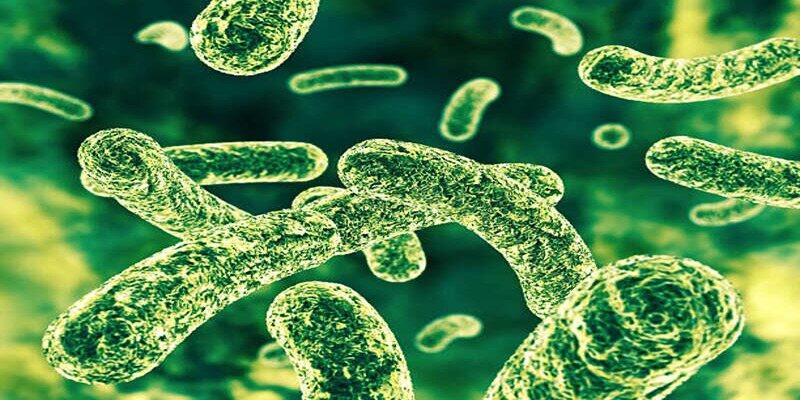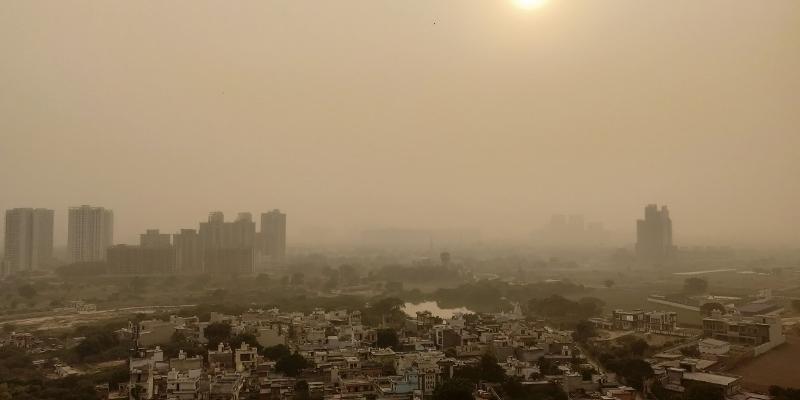Air Pollution's Effect on Nose and Throat Bacteria
Oct 19, 2023 By Madison Evans
Concern about air pollution has grown beyond its environmental and health impacts. A recent study has shown the hidden effects of air pollution on our microbial ecosystems, notably in our nose and throat passages. This paper emphasizes the importance of this understudied subject by examining the complex link between air pollution and nose and throat microorganisms.
Air pollution from several sources delivers a mix of contaminants. Particulate particles, volatile organic compounds, and other gases pollute our air and invade our bodies. This incursion includes respiratory tract microorganisms, raising issues about how air quality affects our fragile microbiome.

Air Pollution and Microbial Communities:
The human microbiome is a varied ecology of bacteria, fungi, and viruses in distinct bodily niches. The nose and throat are full of microbes, our first line of defense against diseases. Recent studies have shown the complex relationship between air pollution and upper respiratory tract microbial populations.
According to studies, air pollution affects the diversity and composition of these microbial communities. Airborne pollutants change the nose and throat bacteria balance, favoring pathogenic strains. The interruption of this microbial balance raises respiratory health risks.
How Air Pollution Affects Bacteria in the Nose and Throat:
Air pollution has a significant impact on nose and throat microbial diversity. Airborne contaminants may change these ecosystems, causing bacterial species imbalances. These alterations may weaken these microorganisms, making the respiratory tract susceptible to infections and pathogens.
Additionally, air pollution may turn harmless bacteria into hazardous or opportunistic diseases. Air pollution may increase the virulence of some bacterial strains, making them more likely to cause infections and evade the host's immune system. These microbial alterations affect individual health and may increase respiratory illnesses and infections in polluted areas.
Implications for Public Health:
Air pollution-induced microbial changes affect public health. Microbial nose and throat alterations are associated with respiratory disorders such as sinusitis, bronchitis, and pneumonia. Air pollution increases respiratory infection susceptibility, which is a significant health risk.
Understanding how air quality affects respiratory tract bacteria emphasizes the need to address air pollution as a public health issue. Reducing air pollution's microbiome influence may reduce respiratory illnesses and enhance polluted populations' health.
Strategies to Mitigate Air Pollution's Microbial Effects:
Air pollution reduction techniques for the microbiota and public health are varied. Strict environmental and air quality restrictions may reduce pollutant emissions and their negative consequences. Pressuring governments and companies to embrace cleaner technology and practices requires public awareness and support for clean air efforts.
Individuals may limit airborne pollution exposure by wearing masks in contaminated locations. Air purifiers and ventilation may help reduce air pollution's impact on the respiratory microbiota. Public health initiatives may teach people how to protect their respiratory health in polluted settings.
The Role of Air Pollution in Microbial Dysbiosis:
Air pollution causes microbial dysbiosis in the human microbiome. Dysbiosis is a microbial imbalance in the respiratory tract. Air pollution disrupts the balance, favoring dangerous germs and diseases. Health may be significantly affected by this imbalance.
Although the specific methods by which air pollution causes dysbiosis are mainly unknown, contaminants may affect bacterial growth and gene expression. Disruption of microbial equilibrium may impair the respiratory tract and systemic health. Nose and throat dysbiosis may alter the gut microbiota, immune system, and brain function, raising issues about air pollution's overall effects on health.
Addressing Air Pollution's Microbial Impact through Research:
Understanding the relationship between air pollution and the microbiome is essential to developing effective microbial dysbiosis treatments. Studies of microbial alterations in response to air pollution may reveal the microorganisms impacted and their processes. This study may also uncover biomarkers or microbiological indicators of air pollution exposure, helping at-risk patients be detected and treated early.
Environmental and Lifestyle Modifications:
Air pollution's microbiological effect requires more than human protection. Ecological and lifestyle changes may reduce microbiome exposure and damage. City design and green infrastructure may reduce pollution concentrations and their influence on microbial ecosystems.
Similarly, a healthy lifestyle with regular exercise and an antioxidant-rich diet helps reduce air pollution's detrimental effects on the microbiota. Exercise promotes a diversified and robust microbiome, which may defend against air pollution.
These improvements are not a cure-all for air pollution, but they show that a diversified strategy may reduce its effects on microbial communities and human health.
A Call for Action and Environmental Stewardship:
Understanding the complex interaction between air pollution and the microbiome emphasizes the need for environmental stewardship. Comprehensive air pollution prevention requires air quality standards, emission reductions, and renewable energy efforts. These steps must be advocated locally, nationally, and internationally to address environmental variables that cause microbial dysbiosis.
Personal decisions, sustainable energy assistance, and clean air measures may help. Awareness campaigns and educational programs on air quality, the microbiome, and human health may empower people to protect themselves and fight for better air.
Air pollution affects vulnerable populations:
Children, the elderly, and those with underlying respiratory disorders are susceptible to air pollution's impacts on microbial ecosystems. Air pollution-induced microbial dysbiosis may worsen for susceptible groups. Polluted air may harm children's growing immune systems and respiratory health throughout their lives. Age-related immune system alterations may make it harder for the elderly to recover from air pollution-related microbial imbalance illnesses.
Asthmatics and COPD sufferers generally have damaged respiratory systems. Air pollution and microbial alterations in their airways may worsen their respiratory health. These fragile groups need extra care to safeguard their respiratory microbiota and health.
Air Pollution's Impact on Microbial Dysbiosis Beyond the Respiratory Tract:
The effects of air pollution-induced microbial dysbiosis go beyond the lungs. These disturbances may affect the whole body starting in the nose and throat. Microbial imbalances in the respiratory tract may introduce hazardous germs into the bloodstream, raising systemic infection risk. Air pollution-induced dysbiosis might indirectly alter the gut microbiome, which is linked to the respiratory microbiome.
Understanding how air pollution affects human health is crucial since the respiratory microbiome is linked to other physiological systems, including the immune system and brain health. Air pollution-related microbial dysbiosis demands a comprehensive strategy that addresses the interconnection of bodily microbiomes and their roles in health.
The Role of Clean Energy and Sustainable Practices:
Reducing air pollution and maintaining the respiratory microbiota requires switching to renewable energy and sustainable practices. Clean energy policies like renewable power production and electric automobiles may drastically decrease airway pollution emissions that affect microbial ecosystems.
Sustainable urban design and green infrastructure, such as urban forestry and green spaces, may reduce air pollution's impacts on microbial diversity. These initiatives promote healthier microbiomes and cleaner air in metropolitan areas.
Conclusion:
In conclusion, air pollution's complex association with nose and throat microbial communities highlights pollution's many health effects. Air pollution alters the respiratory microbiota, increasing susceptibility to respiratory infections and perhaps affecting other physiological systems.
Air pollution affects microbial dysbiosis; clean energy, sustainable practices, and air quality monitoring and control are needed. Stricter pollution controls may safeguard vulnerable populations and avoid the long-term health effects of microbial imbalances. Fighting air pollution's hidden microbiological effect requires empowering people to protect themselves and campaign for cleaner air in their communities.
This discovery may lead to cleaner air and a better respiratory microbiome, improving global well-being and reducing respiratory disorders.

Why Am I Breaking Out? 8 Sneaky Causes of Acne - From Secrets to Solutions

Dark Spots on Face: Unpacking Potential Causes and Treatments

Why Palmitic Acid in Coconut Oil Is More Important Than You Think

Here’s How to Check Your Health Through Fingernails

Best Practices for Storing Coconut Oil

How do you get gut flora?

Hanging Out for Health: Does a Dead Hang Really Elongate Your Spine


